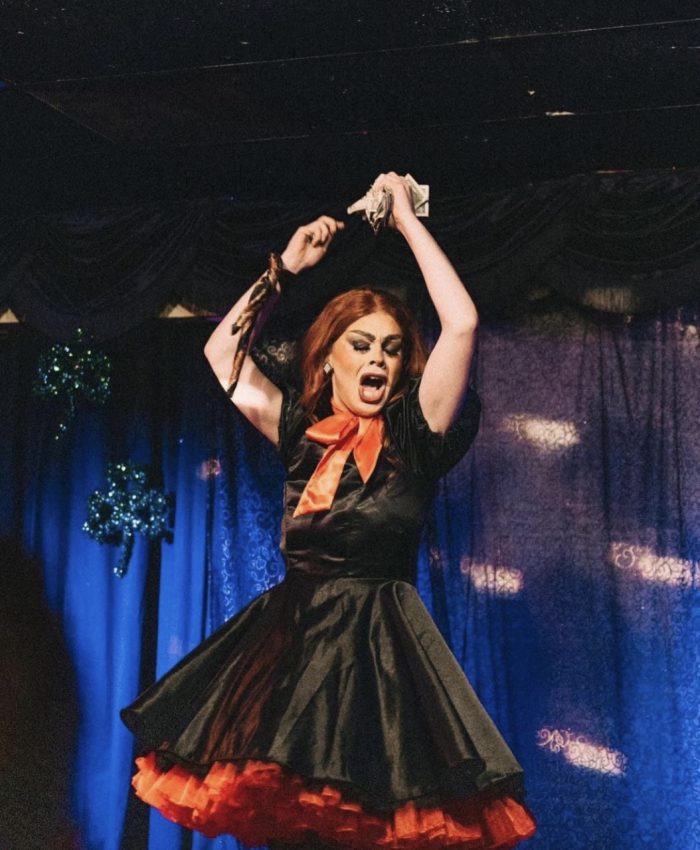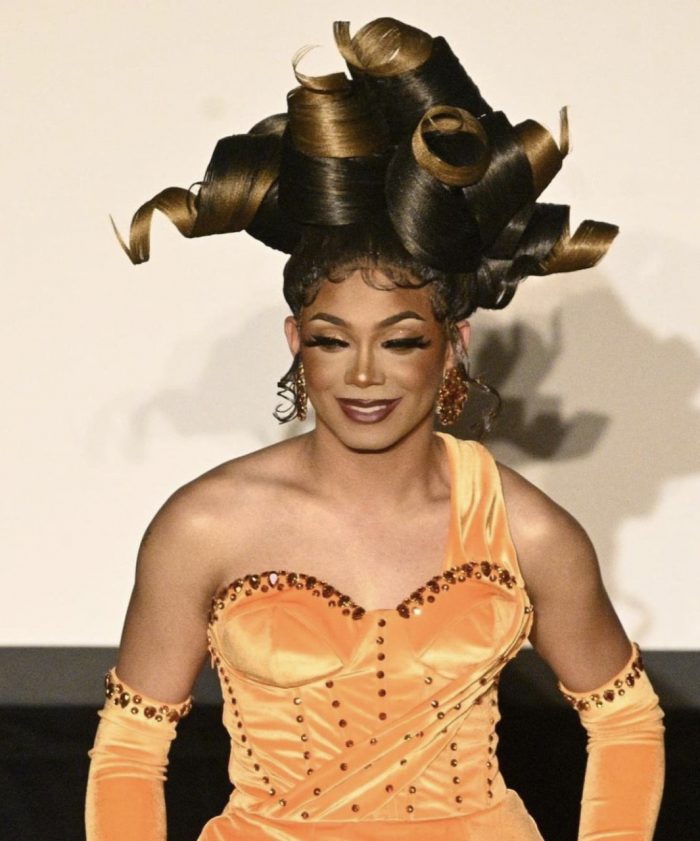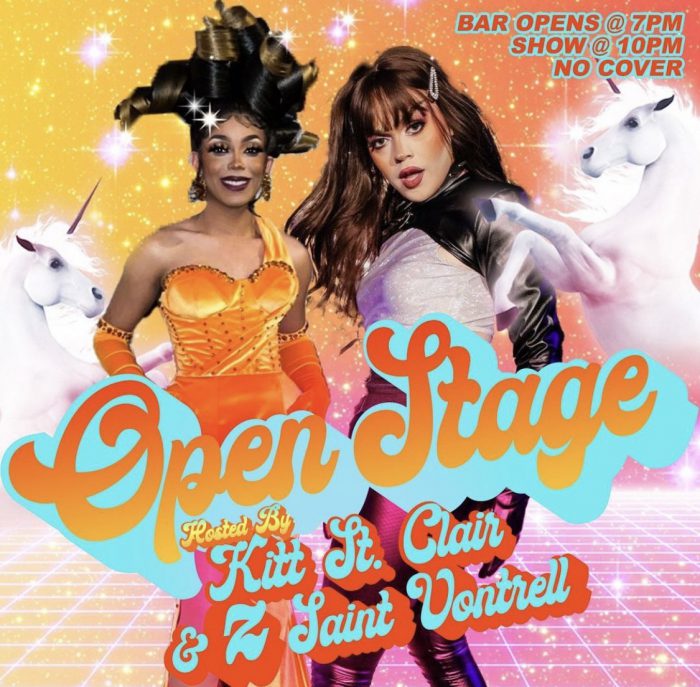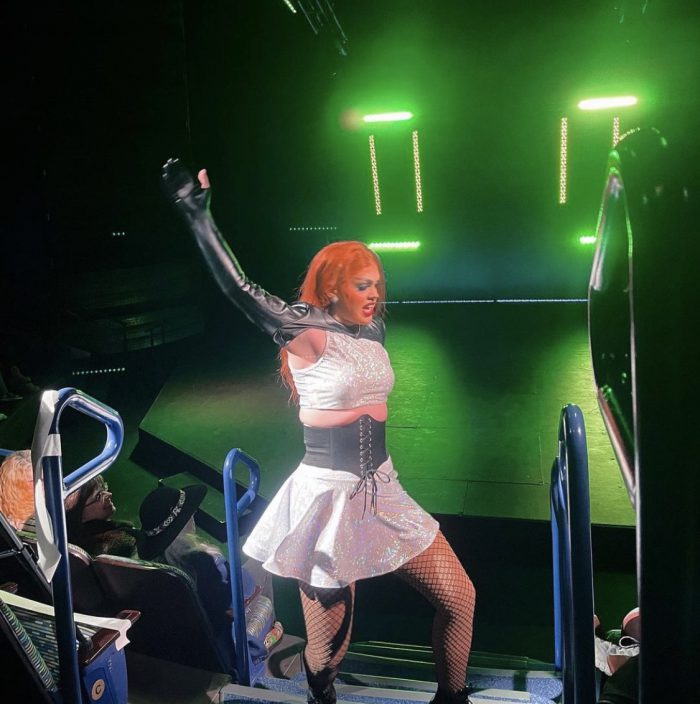Should drag be censored from children? Tennessee Republican Governor Bill Lee has recently passed the country’s first anti-drag bill, making it the first state in the country to censor this form of entertainment. Last month, a bill that described drag as “adult cabaret performances” made its way up through the Tennessee House, restricting the location of such performances.
Tennessee Senate Bill 3, or Tennessee Drag Ban, does not stop at just restricting drag queens, but a range of other performances as well. The ban includes “topless dancers, go-go dancers, exotic dancers, strippers, male or female impersonators who provide entertainment that appeals to a prurient interest, or similar entertainers.”

Indiana drag queen, Kitt Saint Clair, performs at Someplace Else Nightclub in Evansville, Indiana

Indiana drag queen, Z Saint Vontrell, competes in Miss Gay Indiana. She received 4th place.

Z Saint Vontrell and Kitt Saint Clair host an open stage event for The Backdoor in Bloomington

Kitt Saint Clair performs at the USI Performing Center in Evansville, Indiana
The purpose of this ban is to erase drag from public spaces, and in front of anyone under the age of 18. This includes within 1000 feet of any schools, near any places of worship, or in public parks.
Since the passing of the ban, similar legislation has popped up in at least 12 other states: Arizona, Arkansas, Idaho, Kansas, Kentucky, Missouri, Montana, Nebraska, Oklahoma, South Carolina, Texas, and West Virginia.
In Indiana, local drag queens are still able to perform without restriction in public places and for children. Drag Queen Story Hour, an event started in 2015 by Michelle Tea, is an event where queens can read stories to children in local libraries. With the spread of these drag bans, however, the program is under attack.
In Bloomington’s only gay bar, The Backdoor, local queens are still performing on a weekly basis, putting on shows and performances for Bloomington’s queer community. Knowing that bills like Tennessee’s are quickly making their way across the country, local queens continue to express themselves in a time when their art is being censored.
“The world is not going to be on our side so if we don’t fight for ourselves no one else is going to fight for us,” says Zoriah Saint Vontrell, a Bloomington queen who started doing drag during the pandemic to express herself.
Vontrell is a full time drag queen and depends strictly on the income from drag shows to fund her lifestyle. She is one of the many drag queens that would be affected if the drag ban continues to spread to her state.
Kitt Saint Clair, an Indiana local drag queen, started doing drag during the pandemic. With only two years of experience, she has already come in second place in the Miss Gay America pageant, which is known as the most prestigious state wide drag competition.
The concern of drag queens being around children stems from claims without proof, describes Vontrell, who says that conservative lawmakers are pointing fingers in the wrong direction.
“If it wasn’t drag queens it would be trans people, if it wasn’t trans people it would be black people. They’re always going to blame something to distract from their own problems like gun violence,” says Vontrell.
Another full-time Indiana queen, Kitt St. Clair, says that drag is not the dark and improper thing that lawmakers think it is.
“It’s very, very, very obvious that you just haven’t been exposed to that environment, and that’s okay, but it’s not okay to then go and make rules and laws that pertain to those spaces and the individuals in those spaces, and how that will affect them,” says St. Clair.
To express you opinion to Indiana’s House of Representatives call (317) 232-9600 or Indiana’s State Senate line at (317) 232-9400.








